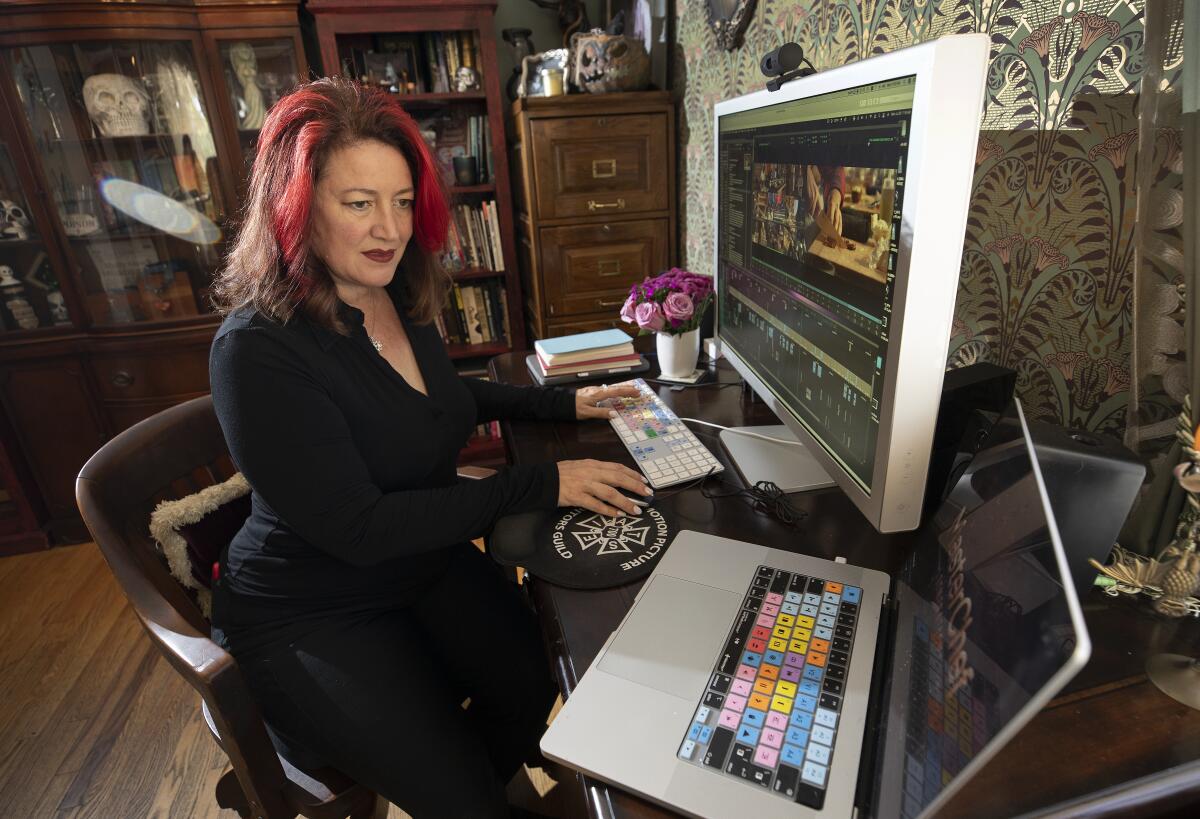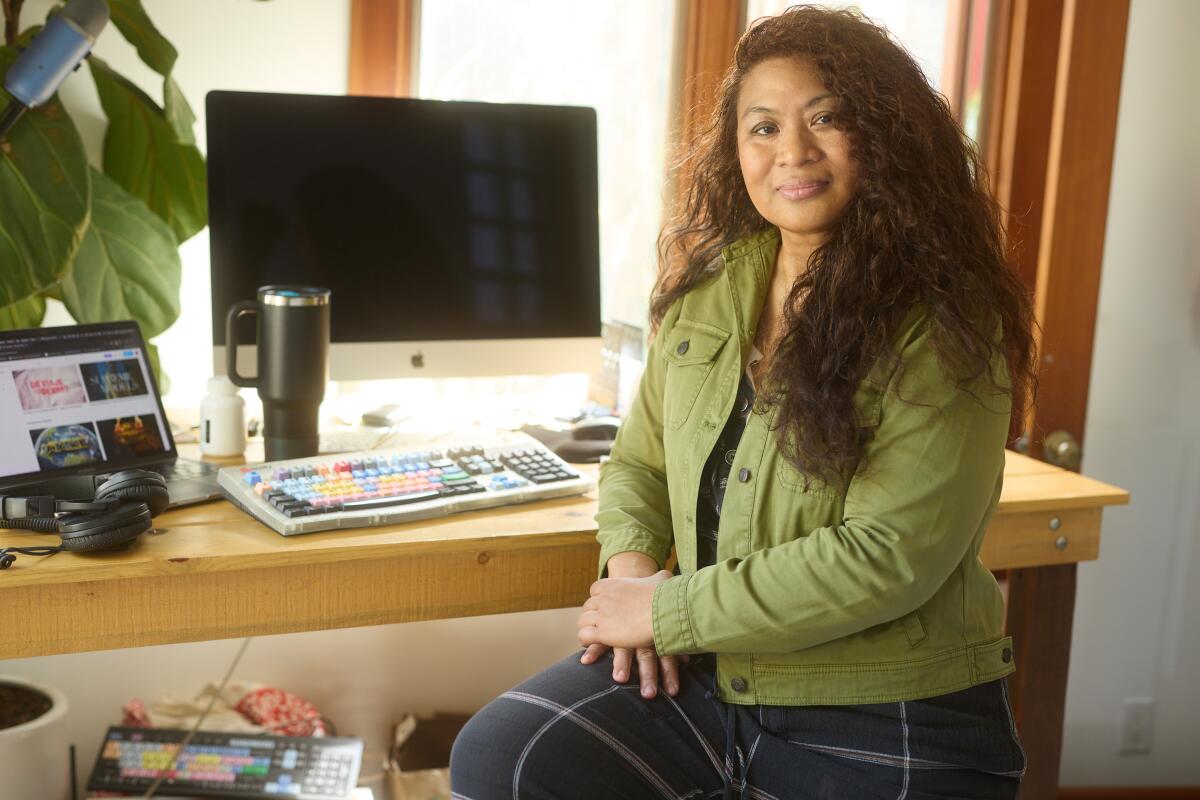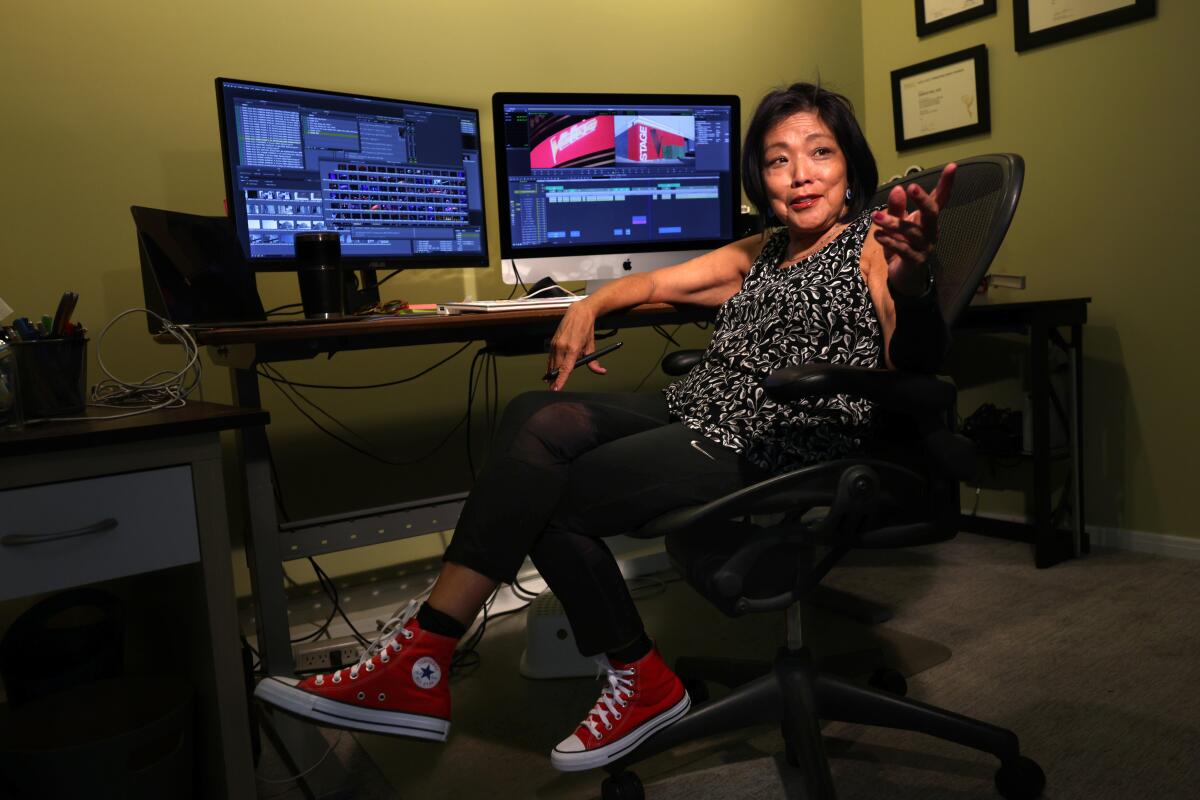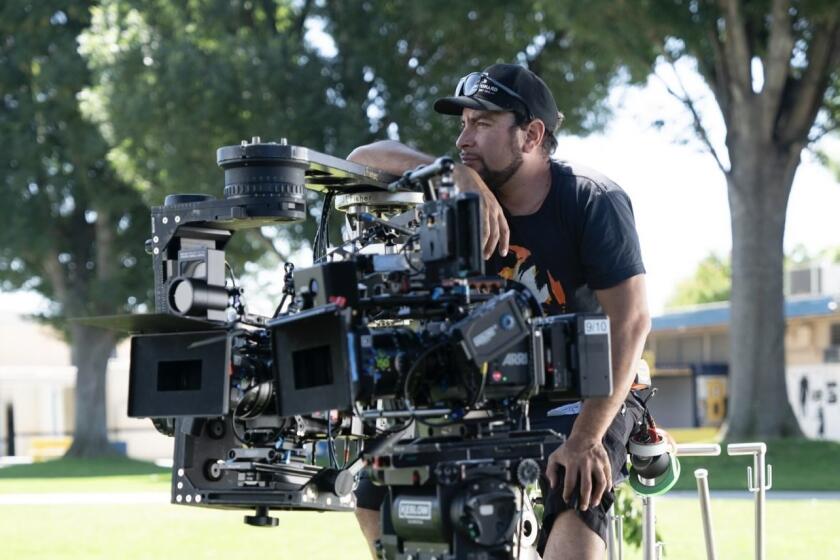The Hollywood production collapse’s latest victim: Why the reality TV bubble finally burst

- Share via
When Hollywood writers went on strike in 2007 and 2008, unscripted TV production soared.
Scripted projects stalled during the work stoppage, and studios turned to reality TV — a cheaper, faster format that didn’t rely on union writers — to fill the airwaves. Audiences began keeping up with the Kardashians and saying yes to the dress, and a new era of television was born.
But around the time writers walked out again in 2023, something strange happened.
“I thought because of the strikes there might be an uptick in reality TV because most of my jobs haven’t been union,” said Celeste Diamos, a TV editor who has worked on “House Hunters,” “Property Brothers” and “The D’Amelio Show.”
“In fact, it was the opposite.”
The slow resumption of film and TV work after the Hollywood strikes is causing stress in the industry. Mental health professionals share how to cope.
From April through June, reality TV production in the Greater Los Angeles area plummeted by 57% compared with the same period last year and 50% compared with the five-year average, according to FilmLA, a nonprofit organization that tracks on-location shoot days and filming permits in the region. (The five-year average excludes three months in 2020 when production shut down because of COVID-19.)
The decline is largely a symptom of an industrywide contraction that began before last year’s strikes and has persisted since. But most forms of production have stabilized at roughly 15% below what FilmLA would consider a normal amount of filming activity in Los Angeles.
“Reality TV has taken a pretty substantial hit,” said Paul Audley, president of FilmLA.

Subscribers get exclusive access to this story
We’re offering L.A. Times subscribers special access to our best journalism. Thank you for your support.
Explore more Subscriber Exclusive content.
“People have asked us ... ‘Are we losing it to Georgia?’ or ‘Are we losing it to New York?’” he added. “Well, they’re all screaming the same thing. They’re all seeing a loss of production. It’s global. It is national, and it is also local.”
Until now, reality TV was not as badly affected by cutbacks that have plagued Hollywood in recent years, Audley said.
After the COVID-19 quarantine lifted, unscripted production rebounded quickly because reality TV shows were easier to make under Hollywood’s new health protocols, Audley said. A similar phenomenon occurred during the strikes because most reality programming doesn’t employ Writers Guild of America members or SAG-AFTRA actors.
That period of relative prosperity led to an “artificial high” for reality TV, Audley said. But unlike the COVID-19 regulations and the walkouts, the current wave of belt-tightening and production cutbacks is coming for everyone.
Studios are slashing their production slates and budgets in the wake of the so-called streaming wars, while production companies are filming projects in the United Kingdom, Ireland and other places around the world to save money.
“In 2022, you could not find an editor in this town” because the demand for workers in the field was so high, said Molly Shock, an editor whose résumé includes “Project Runway,” “RuPaul’s Drag Race All Stars” and “MasterChef USA.”
“That flood of work created some false expectations of people thinking, ‘Oh, streaming is great. We’re gonna have all this work all the time,’ not really seeing it as a bubble that was going to ultimately burst.”

“I’m normally very, very happy to talk to new people and mentor them and give them guidance,” she said. “But it is very difficult for me in good consciousness to recommend getting into this industry right now.”
Editors, who make up much of the reality TV workforce, say it’s been especially hard to find jobs because even projects that film in Los Angeles are doing postproduction elsewhere.
“It’s sad that ... ‘How much money can I make?’ is what everyone ultimately thinks about,” said Diamos, “instead of quality or loyalty to people who’ve worked with them before.”
With Hollywood production activity and employment down while the cost of living rises, some film and TV workers are leaving Los Angeles — and California.
Tricia Rodrigo, a reality TV editor who has worked on “Survivor,” “The X Factor” and “The Amazing Race,” said many postproduction jobs have moved overseas.
“I sent a lot of emails ... last year, and then eventually I just gave up,” Rodrigo said. “Everyone who I would email would be like, ‘I’m looking for work too.’ There just isn’t anything.”

“I am good at what I do, and I know with all the content that’s being created in the world, there is a need for editors — good editors — who can tell and extract strong stories in a concise manner,” she said. “It just isn’t being reflected in the job market.”
The shrinking of cable TV has fueled the woes as well, according to Omega Hsu, an editor whose credits include “Rescue 911” and “The Voice.”
She cited the rise of streaming services, which depend less on new reality programming, and corporate mergers, which have resulted in fewer cable channels producing fewer shows.
“There’s just not enough money in it, so there’s a big consolidation,” Hsu said. “I don’t think that it’s coming back. I think it’s just gonna get worse from here.”

“If there’s no shows being shot, then there’s no shows being edited,” Hsu said. “There’s just so many less shows being produced and in a shorter amount of time. ... It’s concerning.”
Multiple editors remarked that streamers don’t need to worry as much about creating the next big reality TV show because they can count on popular titles from their back catalog to attract more subscribers. Some of the classics, such as “Survivor,” have dozens of seasons that audiences can catch up on.
“Still ... when you think of reality shows, it’s ‘Housewives.’ It’s ‘The Voice.’ It’s ‘The Amazing Race,’” Shock said.
“That used to be the programming when cable ruled the airwaves. ... Those markets don’t exist anymore.”
2023’s dual strikes by writers and actors created a dry spell for everyone in Hollywood. Crew members are still feeling the aftershocks.
Hsu is one of the lucky ones, steadily employed by a major network on a hit “shiny floor show” — industry lingo for glitzy competition programs such as “The Voice” and “American Idol.” But she has friends who have won Emmys and are out of work.
She tries to help her colleagues by passing along résumés for jobs she can’t take. Whenever she offers to do so, typically via email or text, as many as 30 editors will respond.
“I feel relatively safe for the next three to five years, but I don’t know,” Hsu said. “The landscape is going to change a lot.”
More to Read
Inside the business of entertainment
The Wide Shot brings you news, analysis and insights on everything from streaming wars to production — and what it all means for the future.
You may occasionally receive promotional content from the Los Angeles Times.














